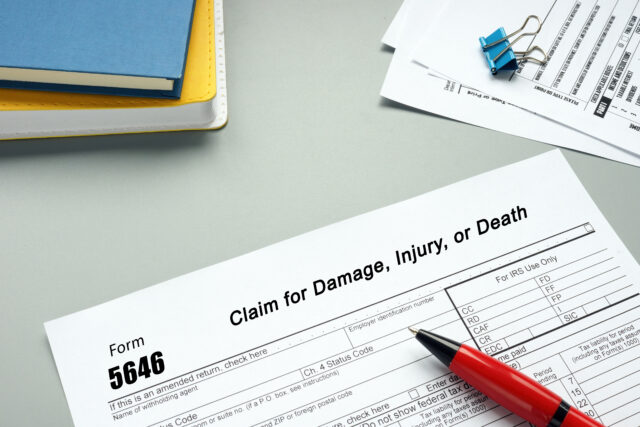After the sudden loss of a loved one, understanding the wrongful death statute of limitations in Arkansas can be overwhelming. The statute of limitations sets a time limit on when a claim can be filed, and in wrongful death cases, it can be particularly challenging. Determining when the clock starts ticking, calculating the specific time limit, and ensuring all necessary documents and evidence are gathered within that time frame are all vital actions to such a claim. If you find yourself faced with a potential wrongful death claim, it is in your best interest to seek the guidance of an experienced personal injury lawyer who can help you understand the ins and outs of the statute and ensure your rights are protected. Reach out to a knowledgeable Arkansas wrongful death attorney for assistance with your case.
Arkansas Wrongful Death Guide
- Understanding the Wrongful Death Statute of Limitations in Arkansas
- Determining the Start Date: When Does the Clock Start Ticking?
- Calculating the Specific Time Limit: Navigating the Three-Year Rule/a>
- The Importance of Seeking Legal Guidance
- Tolling of the Statute of Limitations
- Government Entities
- Importance of Acting Quickly
- What is a Wrongful Death Claim?
- Incidents that Give Rise to Wrongful Death Claims
- Who Can Be Liable for a Wrongful Death Claim?
- Who Can File a Wrongful Death Claim?
- The Value of a Wrongful Death Claim
- Reach Out to an Arkansas Wrongful Death Attorney Today for Help
Understanding the Wrongful Death Statute of Limitations in Arkansas
When it comes to wrongful death lawsuits in Arkansas, it is necessary to have a firm grasp of the statute of limitations. The statute of limitations is the legal time period within which a wrongful death claim must be filed. Failure to file within the specified time frame can result in the claim being dismissed, preventing the bereaved family from seeking compensation for their losses.
In Arkansas, the statute of limitations for wrongful death cases is generally three years from the date of the victim’s death. However, certain exceptions and nuances must be aware of that can impact the timing of filing a claim. You will want to consult with a skilled wrongful death attorney to ensure you understand the specific limitations in your case.
Determining the Start Date: When Does the Clock Start Ticking?
To correctly calculate the statute of limitations for wrongful death cases in Arkansas, you must determine the start date when the clock starts ticking. In most instances, the clock starts ticking on the date of the victim’s death. However, there are exceptions to this general rule.
Suppose the cause of the victim’s death is not immediately apparent or becomes known at a later date. In that case, the clock may start ticking from the moment the family discovers or should have reasonably discovered the cause of death. It is known as the “discovery rule.”
For example, suppose a loved one dies from mesothelioma caused by asbestos exposure. The family may not know the cause of death until the disease is diagnosed, which can be years after the victim’s initial exposure to asbestos. In such cases, the statute of limitations may start from the date of diagnosis or the date the family should have reasonably discovered the cause of death.
Determining the precise start date of the statute of limitations can be complicated, and it often requires the skill of a knowledgeable wrongful death lawyer. They can evaluate the circumstances of your case and ensure that the claim is filed within the appropriate time frame.
Calculating the Specific Time Limit: Navigating the Three-Year Rule
In Arkansas, the specific time limit for filing a wrongful death claim is generally three years from the date of the victim’s death. It means that the claim must be filed within three years to preserve the right to seek compensation for the losses suffered as a result of the wrongful death.
Understanding that this three-year time limit is strict and inflexible is vital. Once the deadline has passed, the court will likely dismiss the claim, barring any further pursuit of compensation. Therefore, acting promptly and consulting with a wrongful death attorney as soon as possible is vital if you believe you have a valid claim.
The Importance of Seeking Legal Guidance

Complying with the wrongful death statute of limitations in Arkansas requires a thorough understanding of the law and its complexities. Failing to adhere to the specific time limit and requirements can result in the loss of your right to seek compensation for your losses.
By consulting with an experienced wrongful death lawyer, you can ensure you have a knowledgeable advocate. They will guide you through the legal process, help you understand the details of the statute of limitations, gather the necessary evidence, and file the claim within the appropriate time frame.
Tolling of the Statute of Limitations
In some circumstances, the statute of limitations may be “tolled” or temporarily paused. Tolling can occur when the defendant (at-fault party) is a minor, mentally incapacitated, or absent from the state. It can also apply in cases where the defendant tries to evade legal action by hiding or engaging in fraudulent conduct. If any of these situations apply, the statute of limitations may be extended, giving the family additional time to bring a wrongful death claim.
Government Entities
If the wrongful death claim involves a government entity or employee, additional requirements and limitations may exist. Claims against government entities often have shorter deadlines and specific procedures that must be followed. Be sure to discuss your case with a personal injury lawyer experienced in handling wrongful death claims against government entities to ensure compliance with all necessary rules and regulations.
Importance of Acting Quickly
When it comes to filing a wrongful death claim in Arkansas, time is of the essence. Acting quickly will help ensure that the statute of limitations is not missed. Waiting too long to take legal action can result in the loss of valuable evidence, fading memories, and witnesses becoming unavailable or unreliable. By acting promptly, the surviving family members can protect their rights, preserve evidence, and increase their chances of successfully resolving their case.
What is a Wrongful Death Claim?
A wrongful death claim is a legal action that allows the surviving family members of a person who died due to the negligence or intentional wrongdoing of another party to seek compensation for their loss. It is a civil lawsuit filed against the responsible party, often seeking monetary damages for the emotional and financial impact caused by the death.
Incidents that Give Rise to Wrongful Death Claims
Several types of incidents can give rise to wrongful death claims in Arkansas, including the following:
Car Accidents
Car accidents are one of the most common incidents that result in wrongful death claims. When a driver’s negligence or recklessness results in the death of another person, the surviving family members may have a valid wrongful death claim against the at-fault driver.
Medical Malpractice
Medical malpractice occurs when a healthcare professional fails to provide the appropriate standard of care, resulting in the death of a patient. Examples of medical malpractice that can lead to wrongful death claims include surgical errors, misdiagnosis, medication errors, and birth injuries.
Workplace Accidents
In cases where an employee dies as a result of a workplace accident, the surviving family members may have a wrongful death claim. It can include accidents in construction sites, manufacturing plants, and other hazardous work environments.
Defective Products
If a defective product causes someone’s death, the manufacturer, distributor, or seller of the product may be held liable for wrongful death. It can include products like faulty vehicles, machinery, pharmaceuticals, and appliances.
Intentional Acts
Wrongful death claims can also arise from intentional acts such as assault, homicide, or other criminal acts. In addition to criminal charges, the responsible party can also face a wrongful death lawsuit filed by the victim’s family.
Who Can Be Liable for a Wrongful Death Claim?

In a wrongful death claim, the responsible party is typically someone whose actions or omissions directly led to the death of the victim. It can include individuals, businesses, or even government entities. Examples of potential defendants in a wrongful death claim can include:
- Individuals: This can include the driver of a vehicle in a car accident, a doctor in a medical malpractice case, or a property owner who neglected their duty to maintain a safe environment.
- Businesses: If a death occurs due to a defective product or a dangerous property condition, the business’s manufacturer or owner may be held liable.
- Government Entities: In some cases, if a death occurred due to the negligence of a government agency or employee, such as a wrongful death resulting from a public transportation accident, the government entity may be held responsible.
Determining the liable party in a wrongful death claim can be lengthy and detailed. It requires a thorough investigation and analysis of the facts surrounding the case. An experienced wrongful death attorney can assist in identifying the responsible party and building a solid case.
Who Can File a Wrongful Death Claim?
In Arkansas, the right to file a wrongful death claim is granted to individuals considered “proper parties.” The ability to file a wrongful death claim is not limited to immediate family members but extends to other individuals who had a close relationship with the deceased. The following parties are typically eligible to file a wrongful death claim in Arkansas:
- Spouse: The surviving spouse of the deceased has the right to file a wrongful death claim.
- Children: If the deceased had children, they also have the right to file a wrongful death claim.
- Parents: In the absence of a spouse or children, the deceased person’s parents may have the right to file a wrongful death claim.
- Siblings: In certain cases, deceased siblings may be eligible to file a wrongful death claim, although eligibility is subject to specific circumstances.
However, Arkansas law establishes an order of priority when filing a wrongful death claim. The spouse and children have the priority, followed by the parents and the siblings. If none of these parties are available, the court may appoint a representative to file the claim on behalf of the estate.
The Value of a Wrongful Death Claim
Determining the value of a wrongful death claim is a complex process that takes into account various factors. While it is difficult to provide an exact value without a thorough evaluation of the specific case, the potential damages in a wrongful death claim can include:
- Medical Expenses: If the deceased received medical treatment before their death, the family can recover the cost of these expenses.
- Funeral and Burial Costs: The family can seek compensation for the reasonable expenses associated with a funeral and burial.
- Loss of Income: The family may be entitled to compensation for the loss of financial support that the deceased would have contributed over their lifetime.
- Loss of Consortium: This refers to the loss of companionship, love, and emotional support experienced by the surviving spouse.
- Pain and Suffering: In certain cases, the family may be eligible to recover damages for the pain and suffering the deceased endured before their death.
- Punitive Damages: In cases where the responsible party’s actions were particularly egregious, punitive damages may be awarded to punish the wrongdoer and deter future similar actions.
Be sure to work with an experienced wrongful death attorney who can assess the unique circumstances of your case and help maximize the potential value of your claim.
Reach Out to an Arkansas Wrongful Death Attorney Today for Help
 The legalities of a wrongful death claim can be challenging, especially while coping with the emotional toll of losing a loved one. Seeking assistance from a compassionate wrongful death attorney is highly recommended. They can provide invaluable support and guidance throughout the legal process, ensuring all deadlines and requirements are met. It’s their job to collect valuable evidence, assess the damages, negotiate with insurance companies, and represent the family’s best interests in court if necessary. Consulting with an attorney is an important step in pursuing justice and obtaining the compensation that the family deserves.
The legalities of a wrongful death claim can be challenging, especially while coping with the emotional toll of losing a loved one. Seeking assistance from a compassionate wrongful death attorney is highly recommended. They can provide invaluable support and guidance throughout the legal process, ensuring all deadlines and requirements are met. It’s their job to collect valuable evidence, assess the damages, negotiate with insurance companies, and represent the family’s best interests in court if necessary. Consulting with an attorney is an important step in pursuing justice and obtaining the compensation that the family deserves.
Understanding the wrongful death statute of limitations in Arkansas is necessary for injured accident victims and their families. By being aware of the time limitations and exceptions, families can take timely legal action and seek the compensation they rightfully deserve. Acting quickly, consulting with an attorney, and thoroughly understanding the legal process are critical steps in pursuing justice and finding closure after the loss of a loved one.
You need a compassionate attorney during this time to listen to your story, answer your questions, and provide the legal representation you need. Contact an Arkansas wrongful death lawyer today to schedule a consultation and take the first step towards seeking justice.

